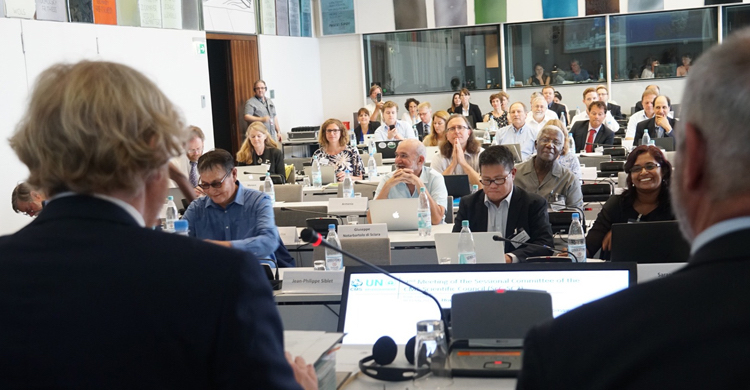By Rita Joshi
BERLIN (IDN) – Protecting the world’s endangered wildlife from unsustainable tourism, lead poisoning, underwater noise, and the transition to clean energy will be some of the themes at the centre of a major global meeting which kicks off in Manila in less than three months.
More than 120 countries will gather in the Philippine capital for the 12th session of the Conference of the Parties to the Convention on Migratory Species (CMS COP12) from October 23 to 28 2017. The meeting will focus on an array of critical issues facing the world’s endangered wildlife shared across international borders. The CMS Secretariat is based in Bonn
On October 22, a High Level Segment comprising Ministers from across the globe will discuss the linkages between protecting migratory wildlife and achieving the Sustainable Development Goals.
Countries meeting in Manila, will also seek to avert a total collapse of vultures in Africa, through a multi-species plan. The plan seeks to encourage countries to take urgent action on the ground to conserve these species that are critical for providing essential ecosystem services for human health.
Climate change remains a key driver of extinction for all species. While renewable energy technologies can mitigate the effects of climate, bats and birds, however, suffer a high mortality rate from collisions with wind turbines. CMS COP12 will be told that wildlife-friendly energy technology can reduce such harm.
A large number of proposals for greater protection under the Convention have been tabled for the intergovernmental negotiations, including very well known species such as the Chimpanzee, Giraffes, Leopards, Lions and the Whale Shark.
Besides, a series of resolutions have been proposed to deal with threats to the marine environment. Marine mammals, marine turtles, shark, rays and seabirds face threats from bycatch, pollution, underwater noise, offshore wind parks, overfishing and poaching. For the first time, aquatic wild meat is on the agenda.
A new conservation initiative for carnivores in Africa will also be proposed in Manila. Cheetahs, Lions, Leopards and African Wild Dogs may benefit from it.
According to a CMS media release, Illegal killing of birds threatens populations between Europe and Africa and an intergovernmental task force working over the last three years has made good progress and the model is proposed to be replicated in Asia.
The final step before countries meet in Manila is to ensure that there is sound science underlying each of the species proposals submitted by countries. The Convention’s scientific body met in Bonn from July 10 to 13 on to assess each resolution and proposal being tabled for negotiation at CMS COP12.
“The particularly high number of animals proposed for protection under the Convention is a worrying sign of the decline of international wildlife across the board in every region of the world,” said Bradnee Chambers the Convention’s Executive Secretary.
Urgent action is needed to ensure the survival of these species and CMS COP12 will be a major opportunity for governments collectively to decide how they can cooperate on a way forward, he added.
The expert meeting in Bonn brought together some of the world’s top wildlife scientists on birds, fish and mammals. The body made some technical inputs and advice on strengthening the proposals and recommended 34 species for protection under the Convention.
Fernando Spina, the Chair of the Scientific Council said: “The strength of the Convention is the scientific basis that underlies the preparatory work for the negotiations.” Because these animals move between countries and over long distances that ignore political boundaries, they can only be fully protected by international cooperation, he added. “Their fascinating journeys connect the planet.”
According to CMS, an important resolution on migratory connectivity will also be considered at the COP and will potentially reinforce integrated conservation policies and improve international cooperation among countries that share migratory wildlife populations.
The media release added: The resolutions and high number of proposals for species protection, plus the many pressing issues facing international wildlife have set the scene for this conference to be of strategic global importance for the future of the planet’s wildlife. It is expected that the agenda of the COP will attract unprecedented political attention from governments, NGOs and the private sector. IDN-InDepthNews – 25 July 2017]
Photo: CMS Scientific Council Sessional Committee – 2nd meeting in Bonn Credit: Aydin Bahramlouian
IDN is flagship agency of the International Press Syndicate

